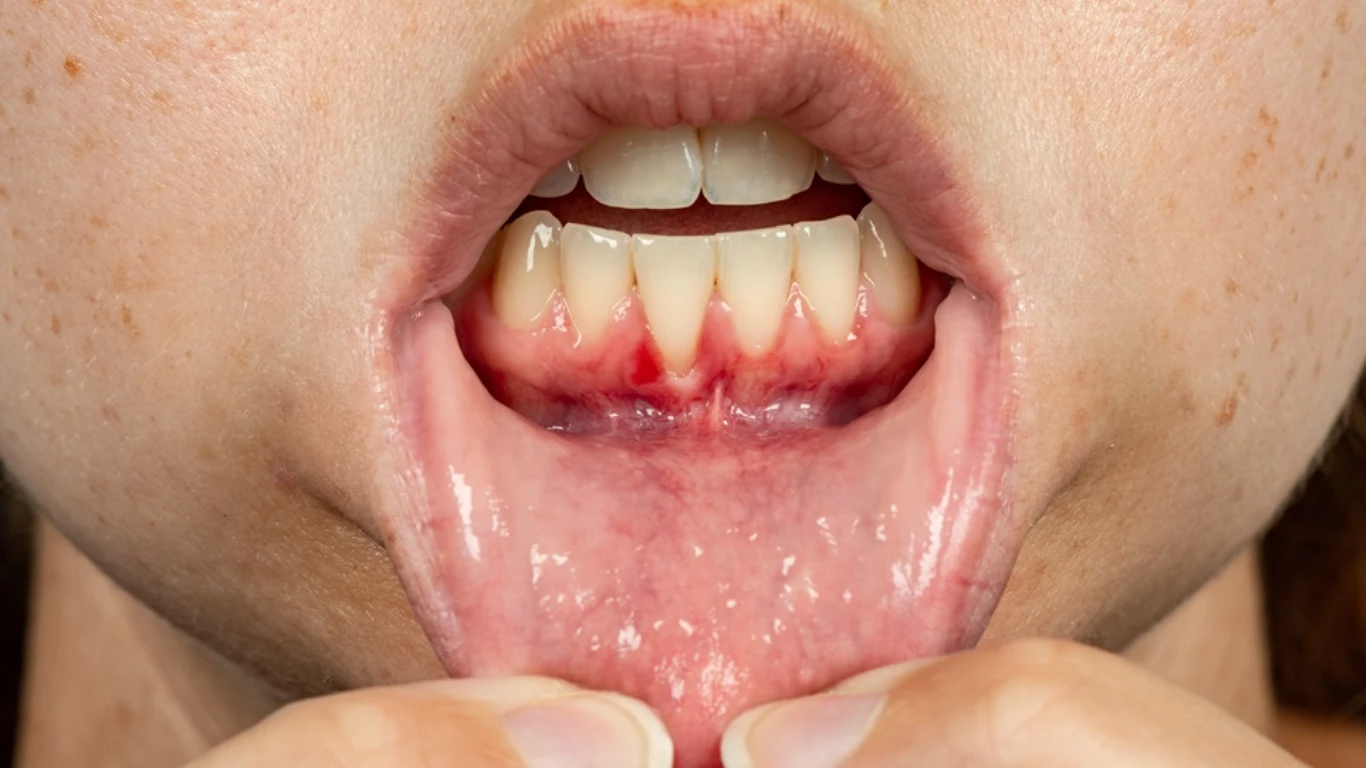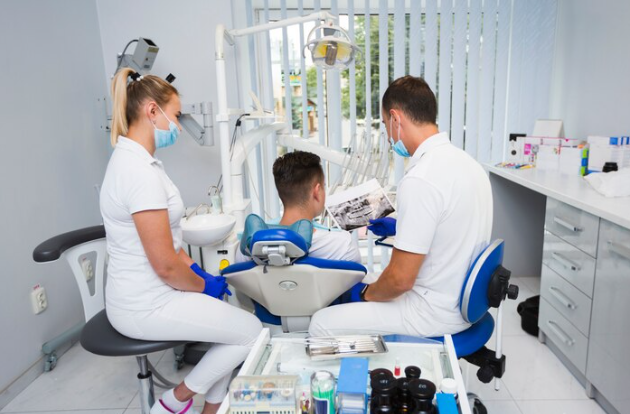
Dental health is crucial, not just for a brilliant smile, but for overall well-being. Among the issues that can arise, tooth infections stand out as both common and potentially severe. These infections require timely intervention, especially in the field of restorative dentistry, to prevent further complications and restore oral health.
What Are The Common Symptoms Of A Tooth Infection Requiring Restorative Dentistry Intervention?
Tooth infections can manifest in various ways, and recognizing these symptoms early can be the key to preventing more serious health issues. Commonly, patients report a persistent, often severe toothache as the primary symptom. This pain might intensify when pressure is applied to the area or when lying down.
Sensitivity to hot and cold temperatures is also a typical sign, alongside swelling in the cheek or jaw area. In some cases, the gum around the infected tooth may swell, and you might notice an unpleasant taste in your mouth or persistent bad breath.
These symptoms suggest that the infection could be affecting the tooth’s nerve or surrounding tissues and may require more than just a simple filling or a cleaning. The nature of these symptoms and their impact on daily life prompts most patients to seek dental advice promptly.
How Does A Dentist Diagnose And Assess The Severity Of A Tooth Infection?
When you visit a dentist with a suspected tooth infection, the first step is a thorough examination. This involves checking for visible signs of infection such as swelling, redness, or pus around the affected tooth.
Dentists also rely on dental x-rays to view the roots of the tooth and the surrounding bone. X-rays help in identifying any damage to the bone around the tooth or the presence of an abscess, a clear indicator of infection.
The dentist might also perform sensitivity tests by applying hot or cold stimuli to the tooth to check for heightened sensitivity or pain.
Another method is tapping on the tooth to assess pain responses, which can indicate the extent of the infection. Based on these findings, the dentist can determine the severity of the infection and the best course of action to treat it effectively.
What Are The Typical Treatment Options For Addressing A Tooth Infection In Restorative Dentistry?
The course of treatment for a tooth infection depends on the location and severity of the infection. Root canal therapy is a popular method that entails extracting the affected pulp, cleaning the root canals, and sealing the tooth to stop additional infection. This surgery not only prevents the infection from spreading and saves the tooth, but it also relieves discomfort.
An extraction might be required if the tooth is beyond repair. After the tooth is extracted, restorative alternatives like bridges or implants may be explored in order to restore the lost tooth and preserve the surrounding teeth and jawbone.
Antibiotics are sometimes prescribed to help control and eliminate the infection, especially if there are signs that the infection has spread beyond the tooth. However, antibiotics alone are not a solution; they are typically used in conjunction with other treatments.
Are There Any Potential Complications Or Risks Associated With Delaying Treatment For A Tooth Infection In Restorative Dentistry?
If you put off treating a tooth infection, there could be serious consequences for the body as a whole as well as the mouth. If left untreated, an infection can extend to the jawbone, seriously harming it and decreasing the jaw’s structural integrity. From there, the infection can travel to other parts of the body, including the heart and brain, posing serious health risks.
Additionally, delaying treatment often results in more complex and costly dental procedures later. What might initially require a simple treatment could evolve into a need for extensive surgery or more invasive treatments. Moreover, the longer an infection is left untreated, the higher the risk of losing the tooth and necessitating more comprehensive restorative work.
In conclusion, recognizing the symptoms of a tooth infection and seeking timely treatment is crucial in restorative dentistry. With the right interventions, most tooth infections can be effectively managed and resolved, preserving both dental health and overall well-being. Therefore, it is vital to consult your dentist at the first sign of discomfort or abnormality in your dental health to prevent any further complications.
Why Choose Gentle Touch Family Dentistry for Your Tooth Infection Treatment?
At Gentle Touch Family Dentistry, we understand the anxiety and discomfort that can accompany a tooth infection. That’s why we are dedicated to providing a caring, compassionate environment where every patient feels valued and cared for. Modern methods and technology are employed by our skilled team of dentists to provide you with the best possible care.
Personalized Care and Advanced Technology
Every patient at Gentle Touch Family Dentistry receives a personalized treatment plan designed to address their specific needs. We believe that no two patients are the same and neither should be their dental care. Our clinic is equipped with the latest in dental technology, allowing for precise diagnosis and treatment. This technology not only makes the treatment more effective but also more comfortable for the patient.
Experienced Professionals Who Care
The highly qualified individuals in our dental team are enthusiastic about patient care and dentistry. In order to stay up to date with the latest advancements in dentistry, they routinely take part in continuing education courses, guaranteeing that you will receive the most modern and efficient care.
Comfort and Convenience
We know that your time is valuable, and we respect that. To accommodate your hectic schedule, Gentle Touch Family Dentistry provides flexible scheduling alternatives, such as evening and weekend appointments. Your comfort is our top priority, and we’ve created a cozy, friendly environment in our office to allay any fears you may have about visiting the dentist.
Transparent Pricing and Comprehensive Services
We believe in transparency, especially when it comes to the cost of your dental care. For treatments related to tooth infections and restorative dentistry, our prices typically range from $200 to $1200, depending on the complexity and type of treatment required. We offer a variety of payment options and work with numerous insurance carriers to ensure that your dental care is as affordable as possible.
Frequently Asked Questions
What should I do if I think I have a tooth infection?
You must get in touch with Gentle Touch Family Dentistry right away if you think you may have a tooth infection. Preventing more severe problems requires early treatment.
How long does treatment for a tooth infection take?
The length of treatment depends on the severity of the infection and the type of treatment needed. Simple procedures may be completed in one visit, while more involved treatments like root canals might require multiple appointments.
Is the treatment for a tooth infection painful?
We use the latest pain management techniques to ensure that your treatment is as comfortable as possible. Most patients experience little to no discomfort during and after the procedure.
How can I prevent future tooth infections?
Good oral hygiene is the best way to prevent tooth infections. Regular check-ups, proper brushing and flossing, and avoiding sugary snacks can greatly reduce your risk.
Ready to Restore Your Smile?
Are you experiencing dental discomfort? Don’t wait for your symptoms to worsen. Contact Gentle Touch Family Dentistry today, and let us help you return to a life of health, comfort, and confidence with a smile. Our dedicated team is ready to provide you with the care you need in a supportive and friendly environment.
Call us today or visit our website to schedule your appointment and take the first step towards a healthier smile!



